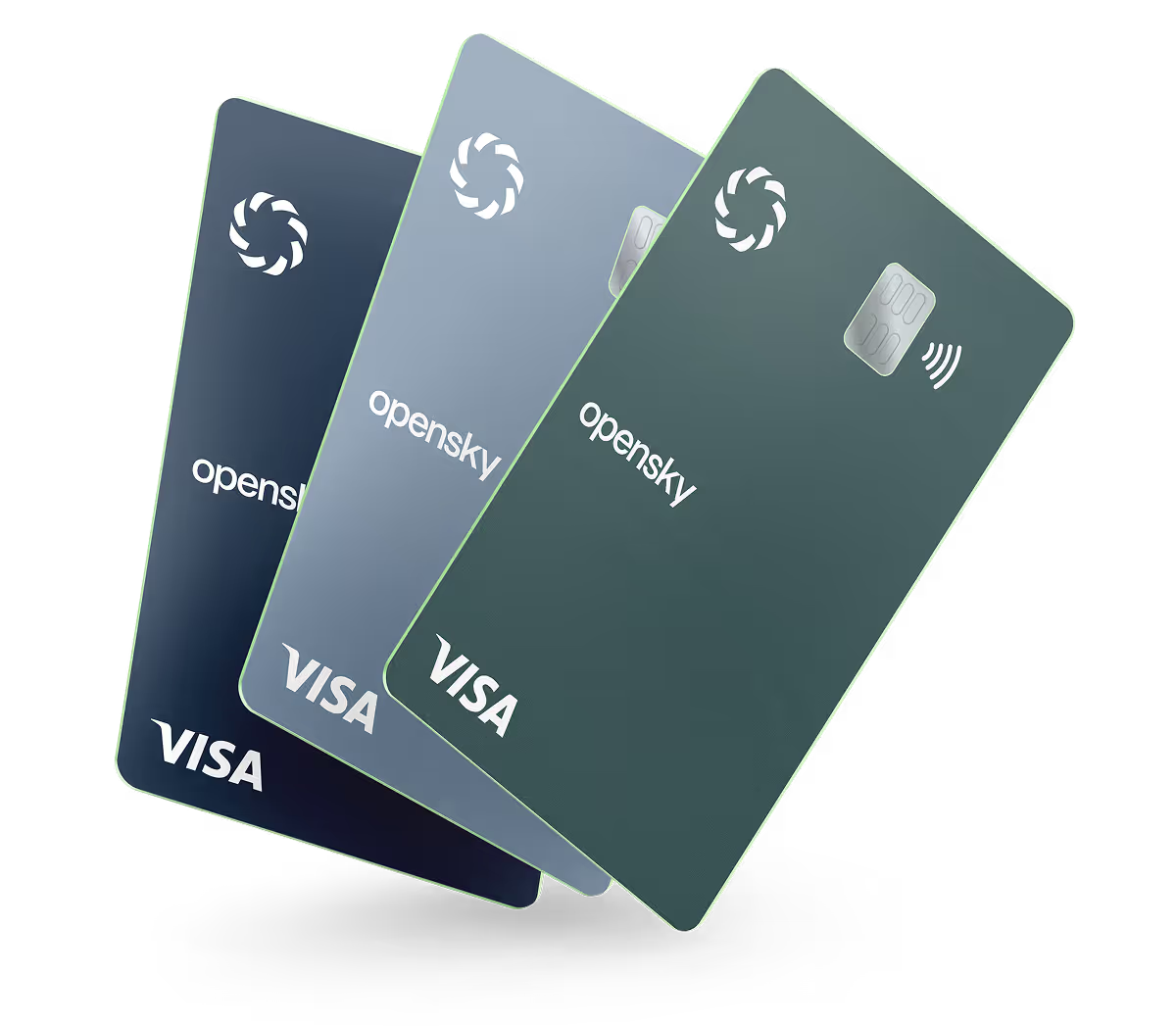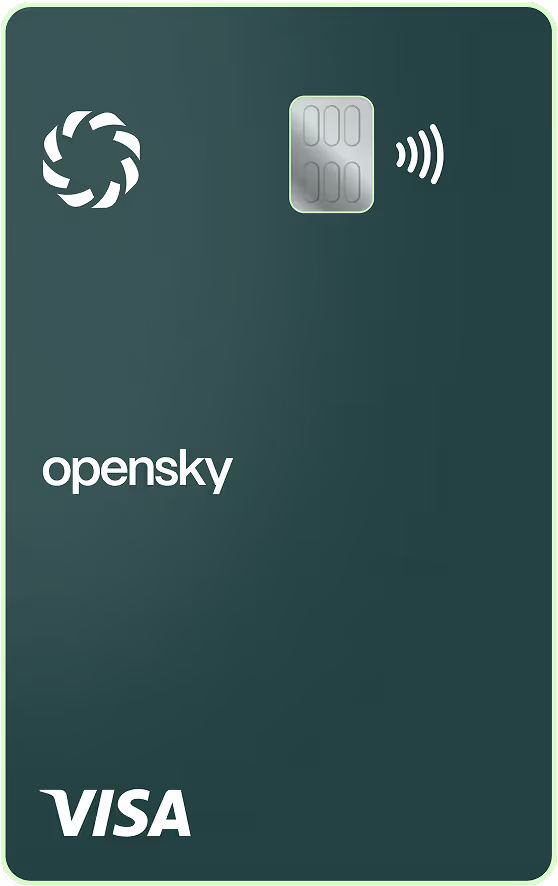Secured vs. Unsecured Credit Cards: What's the difference?
Depending on your financial goals and situation, one type of card might be more helpful at different times in your life...

What’s a secured credit card?
A secured credit card is a type of credit card that requires a refundable cash deposit upfront. Unlike unsecured cards, where your credit limit is based on your credit profile, a secured card's limit matches your deposit. For example, a $100 deposit would give you a $100 credit limit. These cards are typically for people who are new to credit, have limited credit history, or are looking to rebuild a low credit score.
What’s an unsecured credit card?
Most traditional credit cards are unsecured, often what you may see in advertisements. With an unsecured credit card, you don't need to submit a cash security deposit to set your credit limit. Instead, your limit is determined by your creditworthiness, income, and credit history. Unlike secured cards, unsecured cards offer limits based on your credit profile and often come with better perks, rewards, lower fees, and interest rates. However, qualifying for an unsecured credit card can be difficult if you have a lower or nonexistent credit score — that's what makes secured credit cards a good alternative.
Choosing the right card for you
Both secured and unsecured credit cards offer a range of features that can differ depending on the issuer and card type. When choosing between the two types of cards, here are some things you should consider:
Credit history
- Secured credit cards are great for those looking to build or improve their credit profile — think students or recent grads. They're also a good fit for individuals with lower credit scores (a FICO score of 580 or below), which can include people who have experienced financial difficulty at some point.
- Unsecured credit cards are best for those with more established credit histories and can be challenging to get if you don't have at least a fair credit score. However, they can still help you build credit and often offer better perks if your credit score is higher.
Security deposit
- Secured credit cards require a refundable cash security deposit that sets your credit limit.
- With unsecured credit cards, no deposit is required. Instead, your approval depends on your credit score and overall credit history.
Credit limit
- Secured credit cards usually have lower credit limits tied to your security deposit, but using your card responsibly might open the possibility of increasing your limit over time.
- Unsecured credit cards generally offer higher credit limits based on your credit history and income, with the potential for increases based on increases in credit worthiness and/or income.
Interest rates
- Secured credit cards tend to have higher interest rates because they're a higher risk to lenders.
- Unsecured credit cards can offer lower interest rates compared to their unsecured counterparts. This can depend on factors beyond the borrow, such as the type of lending institution (ex: bank vs credit union).
Annual fees
- Some secured credit cards may have annual or maintenance fees, but this varies by issuer. Some might not have any fees at all.
- Annual fees for unsecured credit cards can vary widely. Some cards may have no annual fee, while others, especially those with premium benefits, might charge more.
Rewards
- The best secured credit cards usually offer cash-back rewards, but many come with limited or no rewards.
- Unsecured credit cards often offer rewards like cash back or travel points. Some cards even focus on specific types of rewards to match different spending habits.
How to apply for a secured vs. unsecured credit card
Applying for a secured credit card is similar to applying for an unsecured credit card, but there are a few key differences. Secured cards might not require a credit check, but they always need a cash security deposit upfront to open the account. On the other hand, unsecured cards typically involve a credit check and may take a few days to get approved.
For both types of cards, be sure to review the terms carefully, including fees and interest rates, and have your financial details ready to streamline the process. Here's the information you'll likely need to apply for either type:
- Full legal name
- Social security number (SSN) or individual taxpayer identification number (ITIN)
- Street address
- Phone number
- Employment status
- Annual income before taxes
- Housing costs (rent or mortgage)
Graduating from a secured card to an unsecured card
Many secured cards offer an upgrade to an unsecured card as your credit improves, and some even do this automatically after a series of on-time payments. If your secured credit card doesn't offer a clear upgrade path, you can always apply for an unsecured credit card on your own. In fact, it's common for people to use both secured and unsecured cards for different purchases. That way, you can enjoy the benefits and perks of both.
If you feel you've outgrown your secured credit card and decide to close the account, you'll typically get your full security deposit back as long as your account has no balance. However, closing credit card accounts can reduce your available credit and potentially lower your credit score, so consider whether it’s best to keep the account open if possible.
Takeaways
- Secured credit cards are a smart option for building or rebuilding your credit.
- Unlike unsecured cards, secured cards require a deposit, making them easier to get if your credit history is limited or you have a lower credit score.
- While the card type doesn't directly affect your credit score, how you use it does. So whether you choose a secured or unsecured card, making on-time payments and keeping your credit utilization low is essential to improving your credit score.Bullet point listBullet point list
Frequently asked
What is a "secured" credit card?
A secured credit card requires a one-time refundable security deposit to open and is equal to your credit limit. For example, if you deposit $100, your credit limit becomes $100. The beauty of the opensky secured credit card is that you can open an account without undergoing a traditional credit check. This is especially beneficial if you have a poor credit history or no credit history at all.
How much will a secured credit card raise my score?
Your rate of improvement depends on a few factors, including your current status, payment habits, and your management of this and any other lines of credit. Opensky is designed specifically to help people improve their credit fast, with an online/mobile app and tools like alerts to help monitor your account. Plus you will get considered for credit line increases that turbocharge your growth.
How can I obtain a copy of my credit report?
Federal law states that you can get a free report from each of the three nationwide consumer credit reporting companies - Experian®, TransUnion® and Equifax® - once every 12 months. Don't be fooled by offers from companies to pull your credit report or websites that ask for payment to see your credit report; only https://www.annualcreditreport.com/index.action is the official site authorized by the Federal government.
Is there an annual fee for this card? Are there any hidden charges?
Yes, there is a $35 annual fee for the opensky Secured Visa® Credit Card. There is no annual fee for the opensky Plus Secured Visa® Credit Card. Opensky believes in being upfront. There are no hidden fees or charges. All of our pricing and fee information is transparent and can be reviewed (See cardholder agreements at the bottom of this page).
What is a "credit limit" and how is my credit limit decided?
A credit limit represents the maximum amount you can spend on your credit card subject to approval. You decide the deposit amount, which directly determines your credit limit. It can range from as low as $100 to as high as $3,000, depending on the card you choose. The goal is to ensure you can manage payments effectively and succeed in building your credit! *All applications are subject to approval.


.png)



.avif)
.avif)